QuestionQUESTION: Hi I'm 15 years old and have a beautiful thoroughbred x warmblood. He was a neglected horse at the previous horse owner and at the stables he had like a best friend horse with him. We were going to buy both of them but then we bought just the one. He is 3 years old and alone on the farm but we give him a lot of attention. I'm really trying to keep myself calm with him but just can't. I really want to begin his training with jumping but I can't even lunge him otherwise he aggressively begins to charge me. He bites me a lot and I smacked him about that. But he keeps doing it. He refuses to take his bit in his mouth and he goes bonkers when I put a saddle on him. He through's me off when I get on him. He tries to kick me a lot, and he tries to push me against the railings. He doesn't do any of these stuff to my mom and dad. Please help me he was never like that at the stables. I don't know him anymore.
ANSWER: Well, this sounds like quite a deal here. Let's start out with the basics I am going to need to know about this horse. And you also.
How much real experience do you have with horses? Is this your first horse? Have you ever started one before? Have you been taking lessons, or just learning as you go, and what experience do your parents have with horses? Have you been jumping and showing already, or is it something you want to do but haven't yet?
When is the horse biting you? Leading, feeding, grooming, tacking? And where is it getting you at? Hand, face, back, arm?
Was this horse handled and ridden, and is already trained, or is he unbroken, or only green broke? If he is supposed to be ready to ride, how do you know that, did someone ride him at the barn he was at, or are you just taking their word? And how sure are you that he is 3?
From what you are describing, I am wondering if this horse was ever even broke to ride, or has had any training at all.
Also, what type of place did he come from, a respectable barn, or a rescue type place?
And too, is this horse gelded? What is he getting fed, and what type of turn out or stabling or pasture is he in?
So far, and understand I do need more background on this horse before I can comment in depth, it sounds to me that several things are going on here. I will be going on the assumption first that this horse is gelded, has had some training, and came from a reputable place, and that you have some basic knowledge of jumping and training and also your parents do too.
First scenario.
This horse has no respect for you, and the smacking him for biting is not getting the point across. You should not be in a position where the horse can get to you, without your being able to correct it in another fashion. Smacking the horse will do no good at all, if you continually place yourself near its mouth. You also need to hone your horse handling skills, if this is occuring when leading, tacking, or grooming, as you should be more aware of what the horse is contemplating as well as the mood it is telegraphing.
And if you are prone to handling horses mouth, petting it, feeding it treats and such, you need to stop it immediately. All those things will end up with a biting horse, even one that isn't prone to do it. Here are several things that can be done to curb this habit.
During tacking and grooming. As you work on horse/tack, be aware of horse, if he swings head towards you, be ready to raise your bent arm so that he runs his head into the point of your elbow. Do NOT swing at him, or make a sudden movement, and in no way, shape or fashion, must you look at him, or say anything to him, merely let him run his face/head into the point of elbow. He will connect, possibly startle and move head back to where it is supposed to be. It is of the utmost importance here that he does not think you DID something, as much as it seems that he did it himself. Again you are to exert NO FORCE, do not swing, laugh, speak, or make any gesture that makes it look as if you did something. And don't look at him, before during or after. Keep on with what you are doing.
If biting is while leading, then you need to sharpen up on leading skills. Keep your shoulder at horses throatlatch, and keep right hand on lead shank about a foot from halter ring, the other end should be coiled in left hand. I was taught to keep index finger out along the lead rope in my right hand, so that I could feel any movement in the horse quickly, and then could correct as needed. If horse swings head to bite, I quickly jab my thumb out and poke in side of jaw and tell the horse to QUIT IT. I also do not let horse get into a postition to bite easily, I am right beside him, and he has to move head more, than if I am in front or too far to side. I grew up around Saddlebreds, and worked TBs 8 years and they are very alike in temperament.
As for the lunging, and again I am coming from you having experience here, this horse has no respect for you period. I am unclear as to whether you are free lunging him, or he is on line, but I do hope you have a lash whip, as you need to teach him to stay clear of you, and that he is not to charge you. But TBs rarely are lunged in my experience, (racehorses) as it builds them up the same as racing training, and also gets blood pumping too much. And it really serves no purpose in my thoughts, other than to make sure some of the energy is worn off, if that needs to be done.
Little things add to a horse losing respect for a human. Excessive talking to a horse will lead many to think that human is "yammering" for lack of a better term, and is lower than them on the totem pole. I often think that the same movement a youngster uses when telling an adult horse "I am a baby" translates the same as a human that constantly has mouth open and closing. Other things are someone who constantly lets horse graze on lead, or get away with ducking head down to snatch grass. Also letting horses lollygag behind on the lead rope, never setting distances a horse is to be from you, backing away from food trough so that horse thinks it has run you off feed, and letting horse continue to do as it wants, or moving out of its way when it is behaving aggressively, will lead to a horse developing the attitude it can run the show. Babying a horse, and ignoring attitude, such as when horse is being haltered/unhaltered and has its attention elsewhere is when I will lightly shake halter and tell horse to pay attention to me, so that it is focusing on me, rather than ignoring me.
Another thing that people do without realizing, is that the minute they halter, or mount even, they move out. Horses need to understand it is the human who decides. Making them wait reinforces that to them. Standing still while leading, or riding helps greatly.
Second scenario.
Now, I am going to come at this from the position that you really know nothing about horses, or have never trained one nor have you taken lessons, or if did, for not very long, or in depth. As I wrote, I need a lot more background info on all aspects of this.
At this point, the horse is clearly telling you that you are not the boss, and is willing to hurt you to make that point clear. You also need to get over the thoughts about his neglect/abuse or his past. That has nothing at all to do with what he is doing to you now. While he may have learned some bad habits, the fact that you say he doesn't do this to your parents, is telling me that you are the problem here, in terms of your handling of this horse.
You are either babying him too much, or you are not practicing safe horse handling skills, and you don't need to be riding, lunging or even working with this horse until you get better ones. This horse, judging by the going berserk when saddled, not wanting to accept bit, and the other things you say he is doing, indicates to me that he has not been trained, or if he has had any training, that too many holes have been left in the training at this point for you to be working with him. He is also too young to be jumping. Still has growing to do, both mentally and physically.
If he is not gelded, or was left proud cut, that could also account for some of what you are seeing too. If not gelded, needs to be, and you don't need to be around him period until he is. The fact he is a biter can end up with you having no face, if it continues.
I put two scenarios because I don't have enough information yet to know what is going on for sure. Will look forward to getting more information from you, so know where things stand better.
---------- FOLLOW-UP ----------
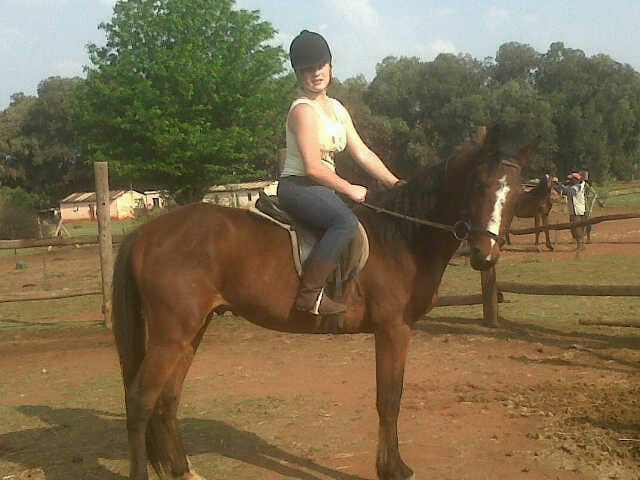
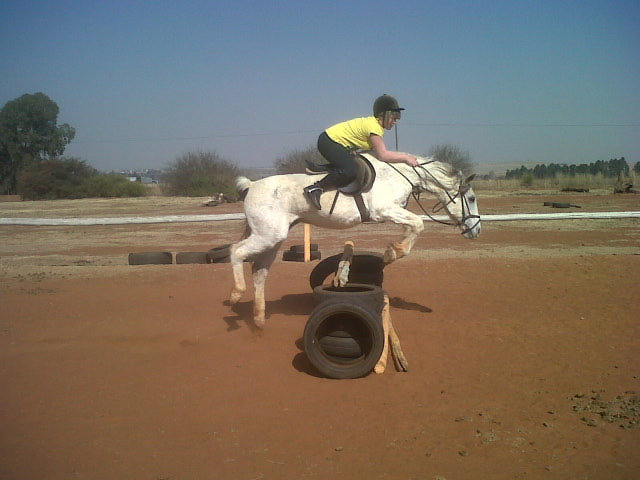
QUESTION: I have a lot of experience with horses. My trainer has put me on a horse that likes bucking and kicking and is very stubborn. And this november I used that horse for my show jumping competition. I am riding for two years already and have the best trainer. He was also in the equestrian military. My mom and I fell of a horse when I was 5 years old. And my mom has a fear of horses but she is getting over the fear with some time. My mom is the one that's always pampering him and talking a lot to him. My dad was in the equestrian military... Something of that kind. He has a lot of experience with horses and knows how to work with them. The horse is broken and a very good horse and I rode his dad and his mom before and very good horses. At the stables he is a very good riding horse and a lot of people took lessons on him before I bought him and I saw how they rode the horse. When the horse was neglected and very shy around people, I always spent time with him at the stables and now he is a wonderful horse. when I groom him he bites me on my bum((I know its a very inconvenient place)) and tries to bite my shirt. He is sometimes in the day a better horse. When I go fill his bucket with water he follows me everywhere. Usually when I try to give his feed in the morning, he blocks me so I can't walk any further. He kicked me on the hill the morning for his feed. I have a bad temper sometimes but I've learned to control it. This is my first horse. The picture that's attached is the my horse when he was still at the stables thank you a lot for you patience
AnswerThe behavior you are describing of this horse is that of a horse that is in control. No horse should be biting you, kicking you, or displaying the types of things this one is.
And while you say you have experience with horses, due to your age, that is not as much experience as you need to deal with the things going on here.
This horse is spoiled, and you are not the leader, which is leading to the problems you are having.
There is also a huge difference in trainers, I know many that I would not trust to lead my horse to the pasture, yet they are raking in big bucks. I also know many who call themselves that, who know absolutely nothing about horses, or training for that matter. And a big difference too in riding and dealing with one obnoxious horse, as the jumper you rode, and dealing with another one that has problems.
And military experience can mean a great deal, or nothing at all. Depends on how much the person really picked up, or retained, or how good they really were with horses. And a big difference being around a couple of horses, or being around 100's of them, and of various breeds and disciplines. I have Amish friends, who because of their religion, must work with horses every day for every day of their lives, yet I have some that will tell you they are not "horsemen" and they are telling the truth.
That said, the things you are describing do not signify a good horse, nor one that you should be fooling around with. The things that are going on are coming because this horse does not respect you, plus if used as a lesson horse, may have gotten tired of being ridden by first one and then the other.
I also fail to see how this horse could have been used as a riding horse for lessons, as you stated he is 3 in first post, and now you say he was ridden by many people forlessons. For a 3 year old he has been used by everyone, and neglected too? And just because you have ridden his dam and sire, means nothing in terms of this horse.
Things are not adding up here. I've been doing this for over 50 years now. My father was a Saddlebred trainer, I've worked with Saddlebreds, Quarter Horses of 5 different disciplines, Thoroughbreds, Racking Horses, and Walking Horses, as well as various others throughout my life, so I have a good understanding of how things should be going. I also had at one point 20 riding students of differing ages that I taught basic horsemanship and riding too for pleasure riding. I own horses and have for much of my life.
Your facts as stated do not make any sense, and any sensible horseperson would tell you the same thing. You have a horse that you have said is doing dangerous things, and now you want to convince me that he is a good horse and that you have the experience to deal with it.
Bottom line is you don't. Whether or not you want to admit it, either you are in over your head, or making all of this up. IF there is a horse, and the things you have described are going on? You will end up badly hurt if you continue as you are.
It may be that you do not want to hear the truth of course, I see this all the time on various forums, and in dealing with people that come to me in real life wanting help with a horse they own. Some of them also would rather ignore the problems and continue on their way. And several of them have gotten hurt, just as I predicted they would.
If you have a trainer, he is sadly remiss in teaching you basic horse handling skills, and he should be the one to deal with the problems of the horse, not you.



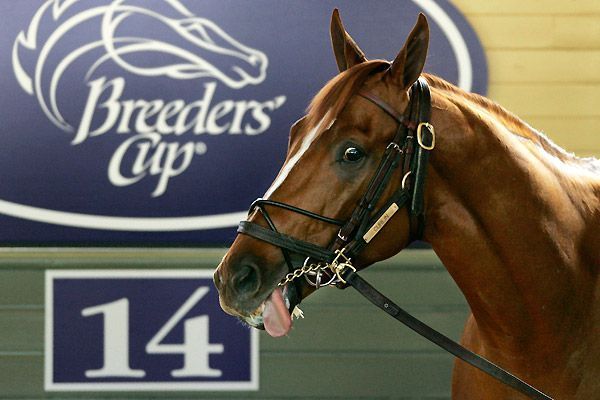 horse sticking its tongue out
Question
horse sticking its ton
hello sir, may i know w
horse sticking its tongue out
Question
horse sticking its ton
hello sir, may i know w
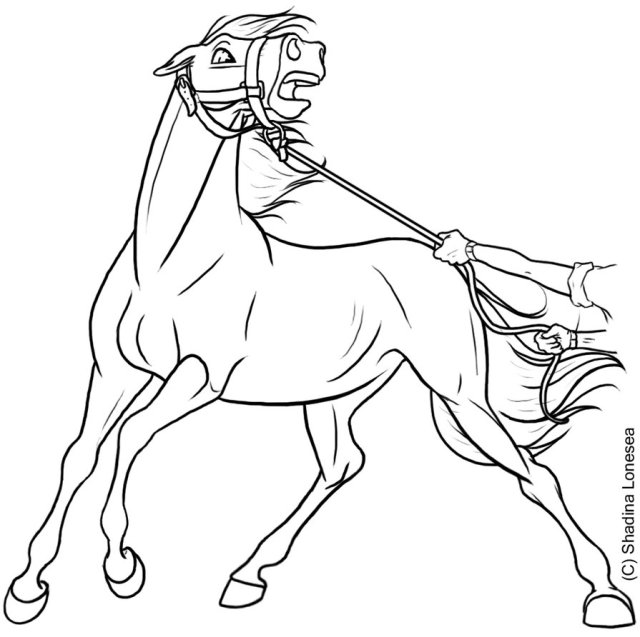 calm down a spooky horse
Questionspooky horse
QUESTION: hello maam. today
calm down a spooky horse
Questionspooky horse
QUESTION: hello maam. today
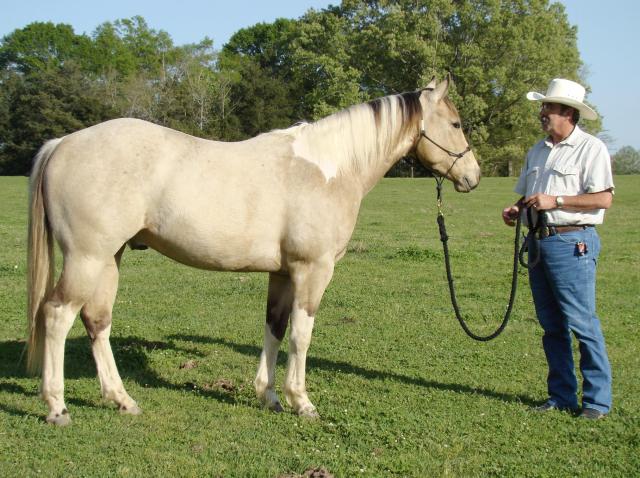 My horse has a bad habbit.
QuestionI bought a Walking horse about 2 weeks ago, he
My horse has a bad habbit.
QuestionI bought a Walking horse about 2 weeks ago, he
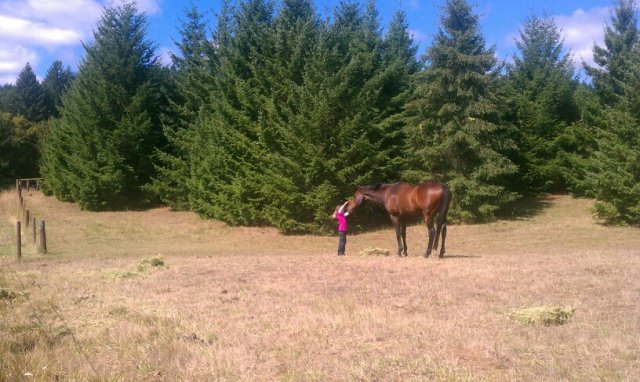 Haunches In/Out
QuestionQUESTION: Denise,
Hi, I was wondering how you
Haunches In/Out
QuestionQUESTION: Denise,
Hi, I was wondering how you
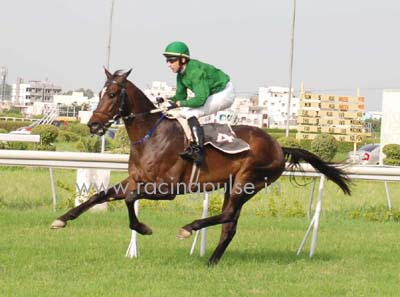 horse having longer stride
Question
longer stride
hello maam, this horse na
horse having longer stride
Question
longer stride
hello maam, this horse na